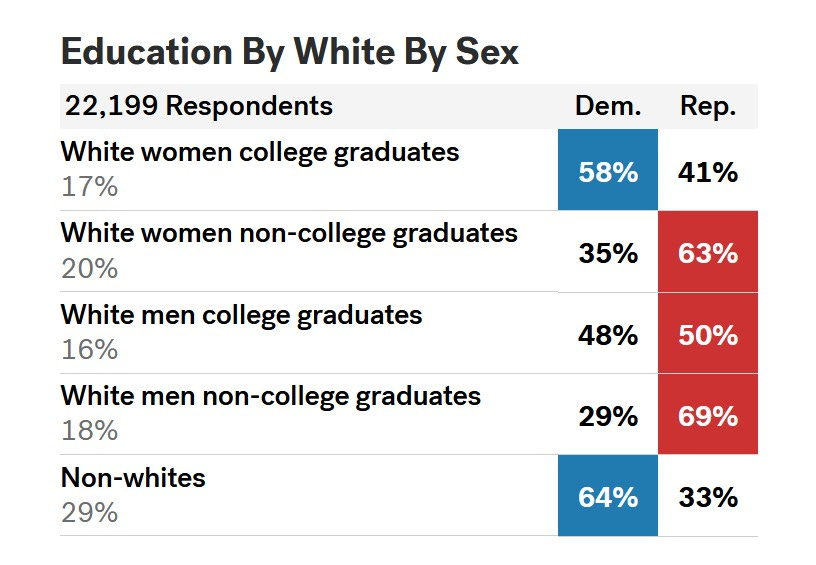The complexity of 2024 voter data
To truly understand the outcome of the 2024 election, you have to dig much deeper into the statistical data than simplistic memes.
As I pointed out last month, the demographic data of the 2024 election is too complicated to break down into broad categories. For example, it is not accurate to say that "college educated voters" supported Vice President Kamala Harris. College educated women supported Harris, while college educated men were evenly split between Harris and President Donald Trump. Women overall supported Harris, but married women supported Trump by a small margin.
No, this does not mean that "single women with a college education don't matter," and I never said that. What I said was that when one part of a demographic overwhelmingly goes one way, it can shift the statistical data for the demographic overall. As I said in my blog post, if Republicans reduce their margin of loss with single women - especially single women with college degrees - that will result in a major political shift. That analysis is about as far from "single women with a college education don't matter" as is possible.
The same is true with data by race, to a much lesser extent. Harris overwhelmingly won Black voters, 83% to 15%. But there was a gap between Black men and Black women, with 21% of Black men supporting Trump while 10% of Black women did the same. As with college educated voters, it would be more accurate to separate the data by race and sex rather than only by race. The sex gap is much more significant with college educated voters overall than by race, since Harris still won Black men by an overwhelming margin.
My favorite response to my post was that "this basically says that more educated people overall voted for Harris." Wrong. It says the data is split by sex. In fact, White men with a college degree actually supported President Trump by a narrow margin, 50% to 48%. It is not accurate to split the data between those with and without a college degree while ignoring the statistical data regarding race and sex.
Statistical data is much more complicated than memes would suggest. By mocking Trump voters as stupid and uneducated, Democrats risk losing voters without a college degree by an even wider margin in 2028. Meanwhile, the legacy news media risks further damaging its credibility in future elections by mentioning significant demographic breakdowns only in passing while supporting the false meme overall. Both would be wise to dig deeper into statistical data and develop strategy accordingly.


